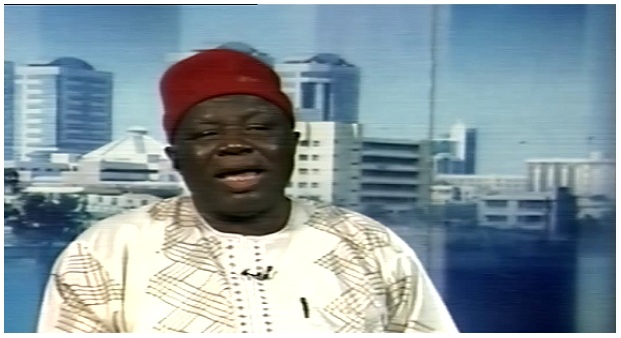
A spokesman of the committee, Professor George Obiozor, said that the proposed dialogue had more supporters than oppositions.
“I can tell you that those in opposition have problems now as it is now clear to all of them that, having visited the whole zones in Nigeria, the enthusiasm that Nigerians have welcomed the idea with is great,” he said on Saturday on Channels Television’s programme, Sunrise.
The governors of Edo State, Adams Oshiomhole and Lagos State, Babatunde Fashola, both of the All Progressives Congress, had faulted the proposed dialogue, insisting that what Nigerians needed was a better life. They have also questioned the agenda of the dialogue.
Professor Obiozor, who is also a member of the committee, pointed out that “in a democratic state, everybody is entitled to his own opinion.
“Many governors are in support of the idea of a dialogue too,” he said.
He also stressed that the structure of governance in Nigeria was causing contradictions and that there was need to look at the fundamentals to find out the cause.
“We are going through the process of civilianisation of Nigerians after many years of military regime. Our assignment has to do with the national interest of Nigerians
“Is it until we have more crises than we have today that we will sit down and talk? He asked.
Defective Constitution
The former Nigerian diplomat explained that the “priority of the process is good governance”, but emphasised that there cannot be good governance where impunity was unrestrained.
Another guest on the programme Mr. Ikechukwu Ikeji, a lagal practitioner, described the current Nigerian Constitution as a document that lacked good foundation and cannot engender good governance.
“The philosophy of governance is such that there should be willing submission to the ‘Grundnorm’ – the body of rules that give efficacy to other laws.
“Majority of Nigerians have refused to submit to the constitution. The constitution is defective and no matter the superstructure you place upon it there will be problem,” he explained, supporting the call for a national dialogue.
He pointed out that the proposed national dialogue would not cure the problems of Nigeria, but described it as “one of the very first steps that are necessary in order to achieve the results that the Nigerian society needs”.
Mr. Ikeji called for a constitution that would give Nigerians a reason to willingly submit to it.
Mixed Multitude With Two Destinies
Sina Fagbenro-Byron, another guest at the programme, described Nigeria as a country with a mixed multitude with various values, diverse opinions and approaches to development.
“A mixed multitude has two destinies. It could be a land of jeopardy because of conflict as a result of the mixture, or a land of opportunity as a result of the diversity.
“What determines which direction the country will go will depend on the political settlement and what the people aggregate their value to be,” he further explained.
“The aggregation has not been done,” he said and insisted that “when the opportunity for a national dialogue comes and is seen as an opportunity for political settlement and the aggregation of our diverse values, then it is also an opportunity to create a land of opportunity”.
Mr. Fagbenro-Byron maintained that Nigeria’s priority should be good governance, saying that the social contract between the leaders and the followers should be categorically specified.
“We are used to listening to politicians and those in political offices.
“A national dialogue that is people driven will give an opportunity to the government to hear what the people have to say,” he said in optimism.
The committee, which was given six weeks to conclude their work, has finished its tour of the six geo-political zones in Nigeria and is collating the general opinion gotten through memoranda.
Professor Obiozor said that the committee was compartmentalising the opinions for different zones and would make the final document known to Nigerians soon.

